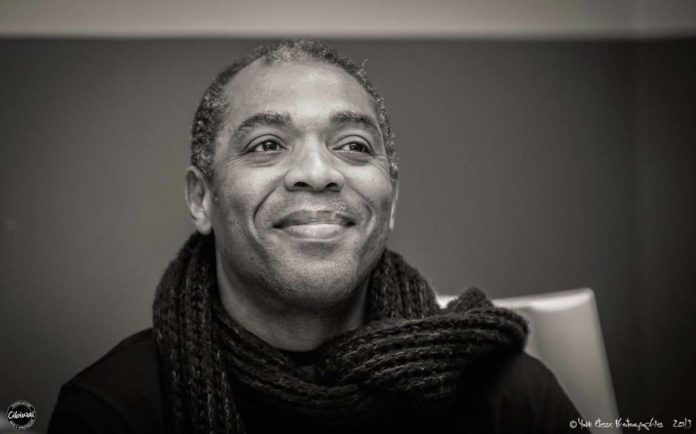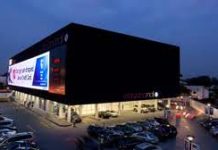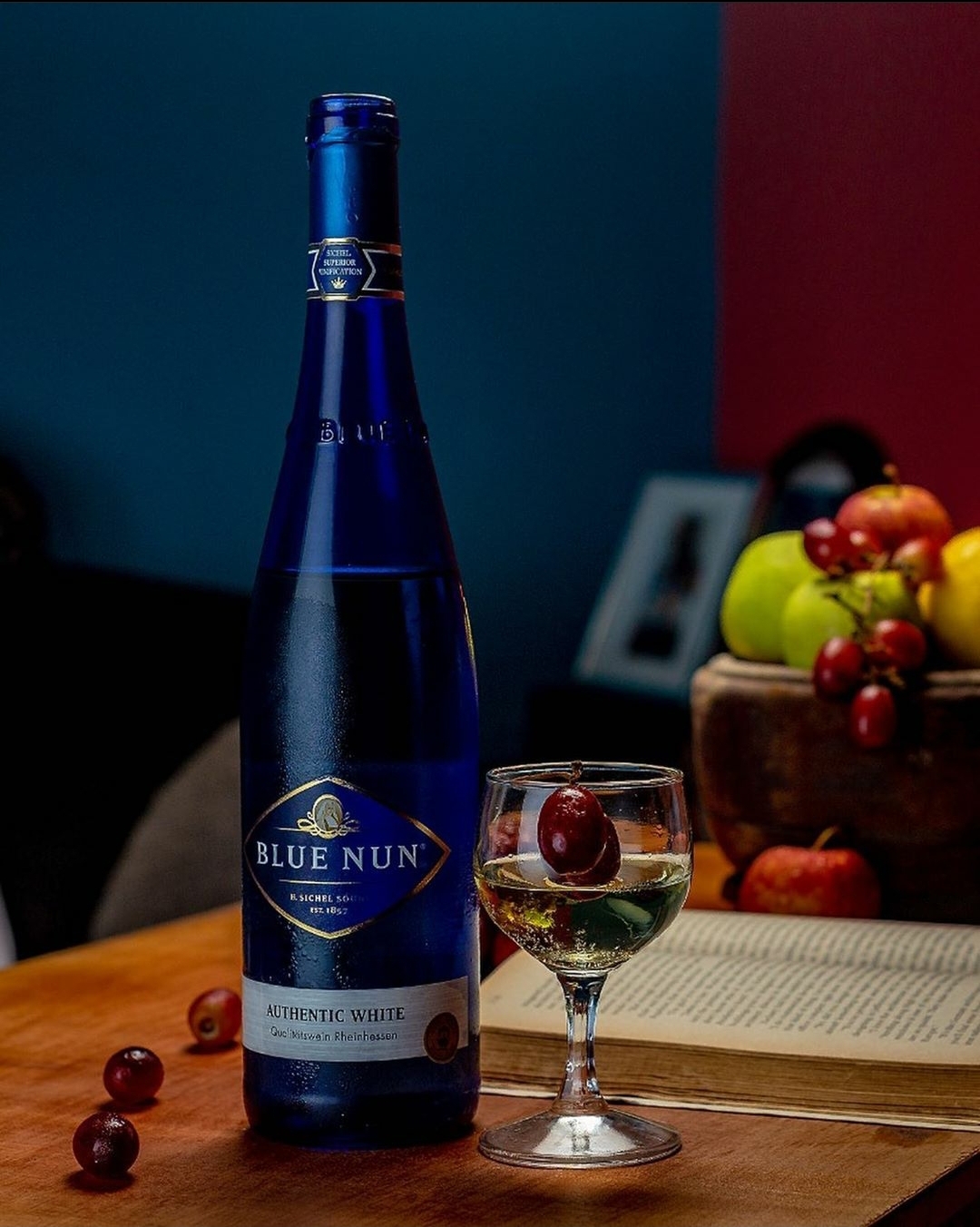My Uber dropped me and I came down with a crease of frown on my face. This was the famous African Shrine. It was a Sunday and I had answered Femi Kuti’s call on twitter. He was performing with his band and with the tickets pegged at N500 I had no excuse not to attend the show.
The Uber drove off and I negotiated my way to the African Shrine. On the road side hundreds of vendors displayed their goods and wares. From quick noodles to the local ewedu and amala. The street was lit up like it was a carnival.
Alas this was how it was every night I was told.
You could also buy all types of locally brewed drinks, condoms, smokes and all assortment of roasted meat, from meat kebabs on a stick to suya. All garnished with pepper, tomatoes, cabbage, onion and the Northern spice.
I walked past these vendors as they implored me to stop and patronize them
There was gaiety all around. Everyone seemed happy and chatted away with each other. Not too far away you could hear the sound from Femi Kuti’s band.
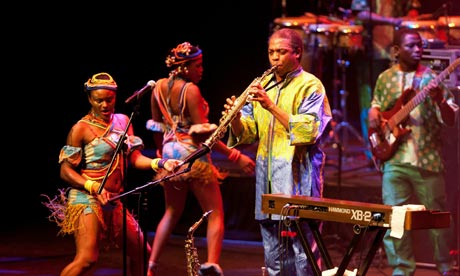
I got to the box office of the shrine, paid my N500 and squeezed N200 into the hand of some guy who had employed himself as my guide from the point where the Uber dropped me to the entrance of the shrine.
‘Wa gbayi baba’ he shouted as he walked away jubilantly.
I stepped into the shrine and met a beehive of activities. Inside the shrine you could see vendors selling different work of art and Fela inspired Tee shirts and Ankara.
Up front a stream of young boys and girls were gathered around a pool table near a group of Caucasians who were gathered around a lady selling palm wine.
You couldn’t also help but sense the sweet-smelling fragrance of marijuana.
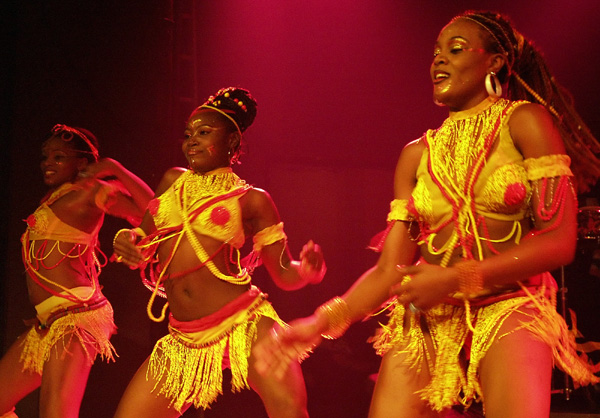
tvornica kulture, koncert
femi kuti
foto dragan matic
-ziv-
I meandered my way through to the front and sat down on a red chair. I didn’t plan to miss the action.
A pocket of vendors swamped around me, offering everything from ganja, roasted fish to palm wine to Henineken beer.
I ordered a bottle of beer and fried meat and sat down to enjoy myself. A European couple was seated just next to me. They introduced themselves and said they had come all the way from Scotland to watch Femi Kuti perform. It was their 3rd year marriage anniversary.
The man pointed to me that his grandfather was part of the band Femi’s father, Fela Anikulapo-Kuti formed back when he was a student in England.
I appreciated the diversity.
I find anything devoid of diversity Dry and uninteresting. Like food without salt.
Twenty minutes later Femi came on stage, dressed with a T shirt and an Ankara pants.
The crowd yelled when he came on stage, his legendary saxophone hung around his neck.
His son by his side. Talk about passing the torch!
I was pretty much excited at this point. The bottle of Heineken beer blocking off all inhibitions I must have felt.
Femi kicked off with my favourite of all his songs ‘beng beng’.
His sexy fiery female dancers swung their waist to the beat, much to the delight of the crowd watching from below.
He followed with all his favourite tunes with his fans singing, chanting and dancing along.
I couldn’t help but join in the dance as the tempo went up and up.
Once in a while, he’d pause and allow the activism in him to take over, berating the corrupt Nigerian government and their lacklustre attempt to eradicate poverty and suffering.
At this point, the front of the stage was full as the audience surge forward to get a clearer view and make space to dance.
I watched in awe at the son of the late Afrobeat King.
Somewhere Fela would be looking down; proud of his son and how well he had kept the legasy, the struggle and the melody flying.
The sound of arararara….Ororororororo filled the air. We were caught and slammed in Afrobeat’s jail for the next two hours.
I swayed right and left, suddenly realizing that this was one of the best night of my life as a young man in Africa’s greatest city, Lagos.
The performance ended as fast as it started.
The couple from Scotland offered me a ride in their chauffeured Mercedes Benz to my hotel.
I look back now and put in retrospect what the Anikulapo-Kuti family have gone through. Their matriarch who is Femi’s grandmother was the first woman to drive a car in Nigeria. She was later killed by the military government after she pushed down from a story building.
Her son carried her body in a coffin and went to dump it at the front of the Dodan barracks right in the heart of Obalende, near Ikoyi.
Being a member of the family is a job in itself. There is a price to pay for the name and the fame they currently enjoy.

